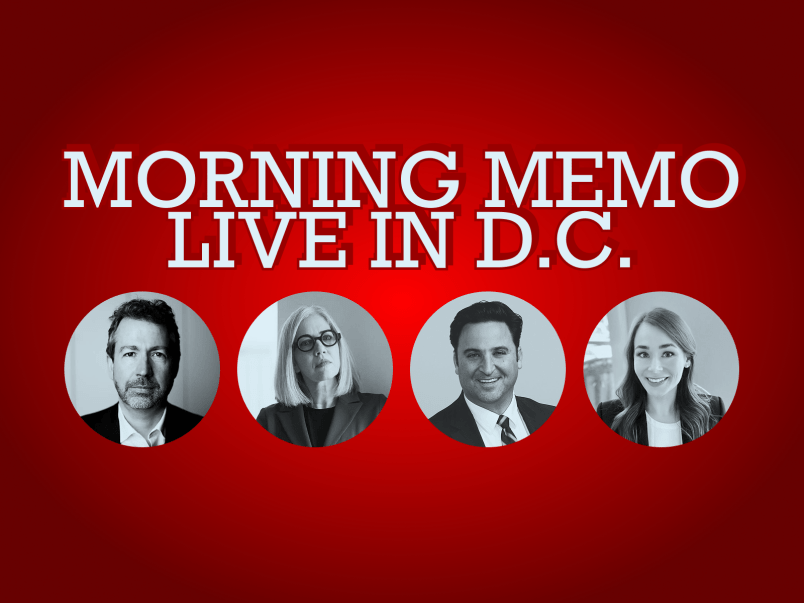Bill Cassidy Chose Not to Fight, and It Did Not Save Him
Rep. Julia Letlow (R-LA) announced Tuesday that she will challenge Sen. Bill Cassidy (R-LA) in 2026, pulled into the race on the strength of President Trump’s preemptive weekend endorsement.
“Louisiana deserves a conservative Senator who will not waver,” she wrote in a tweet accompanying her launch video. “I am honored to have President Trump’s endorsement and trust.”
The waverer in question is Cassidy, a normie Republican and thus an endangered species in the GOP caucus. Of the original seven Republican senators who voted to impeach Trump after January 6, only he, Sen. Lisa Murkowski (R-AK) and Sen. Susan Collins (R-ME) have survived. Cassidy is the quietest of the three.
The senator made clear who he was, who he would be under the second Trump term, back in February, when he cast the tie-breaking vote to advance Robert Kennedy Jr.’s confirmation as HHS Secretary out of committee. Cassidy, a medical doctor, used his momentary but immense power to entrust an infamous anti-vaxxer with America’s health, the deadly effects of which are already ripping through the country. Multiple children have died of measles in the past year, a disease that vaccination had all but eliminated in the United States.
In return for this ultimate betrayal of his hippocratic oath, Cassidy got a list of gleefully broken promises. And, now, a Trump-endorsed primary challenger.
Cassidy’s ambivalence about the MAGA project, embodied in his impeachment vote and brief equivocation over RFK Jr.’s elevation, is unforgivable in the MAGA universe. Far from staunch resistance, even momentary hesitancy is enough to doom a political career.
Letlow — who won her seat after her husband died of COVID-19 before he took office — is promising not to “waver” in her fealty to Trump and his chosen helpmates. Her campaign pitch is to present no friction to the regime.
Cassidy will end his career with blood on his hands. A doctor — someone trusted, someone educated, someone who knows better — crumpled under political pressure. This is his reward.
— Kate Riga
Trump Continues to Threaten Indiana Republican State Senator for Rejected Redistricting Proposal
President Donald Trump and Vice President JD Vance are still targeting Indiana Republicans who have not caved to the administration’s threats to approve new maps.
In a series of social media posts, both Trump and Vance went after Indiana Senate President Pro Tempore Rodric Bray over his failure to save Trump’s pressure campaign. This is not the first time Trump has targeted and threatened Bray for not caving to the administration’s demands on redistricting.
The posts come in response to the Democratic-led Virginia state Senate approving a proposal late last week that would put before voters a constitutional amendment that would allow for pre-midterm redistricting. The advancement of Virginia’s proposal, which would help Democrats in the state, comes against the backdrop of Republican lawmakers rejecting the redistricting push in Indiana. The approval of Virginia’s redistricting proposal and the failure of Indiana’s suggests the administration may not maintain the upper hand in its months-long attempt to redraw red-state maps to maintain control of the U.S. House in the 2026 midterm elections.
“I was with David McIntosh of the Club for Growth, and we agreed that we will both work tirelessly together to take out Indiana Senate Majority Leader Rod Bray, a total RINO, who betrayed the Republican Party, the President of the United States, and everyone else who wants to, MAKE AMERICA GREAT AGAIN!” Trump wrote in a post on Truth Social. “We’re after you Bray, like no one has ever come after you before!”
Vance, similarly went after Bray in a post on X, blaming Bray for Virginia’s advancement of a redistricting proposal.
“I’d like to thank @bray_rodric for not even trying to fight back against this extraordinary Democrat abuse of power,” Vance wrote. “Now the votes of Indiana Republicans will matter far less than the votes of Virginia Democrats. We told you it would happen, and you did nothing.”
— Khaya Himmelman
Musk Invests Heavily in Safe Red Seat
After dumping hundreds of millions of dollars into Trump’s 2024 bid, Elon Musk is back on the market, pumping $10 million into a seeming underdog’s bid for outgoing Sen. Mitch McConnell’s (R-KY) seat. Nate Morris, the self-described “outsider” and businessman, announced his candidacy for the seat last summer on Donald Trump Jr.’s podcast. The money will give the mostly self-funded Morris a boost, as the competitive primary has also attracted heavy-hitters in Rep. Andy Barr (R-KY) and Kentucky Attorney General Daniel Cameron (R).
— Kate Riga
In Case You Missed It
WTF: DOGE Worker at SSA Signed Agreement With Group Seeking to ‘Overturn Election Results,’ DOJ Says
The Backchannel: What Trump Can Do in Greenland by Barely Lifting a Finger
Morning Memo: Trump’s Greenland Rantings Put World on Edge
TPM Cafe: You Say The Supreme Court Isn’t Partisan? Look in the Shadow
Yesterday’s Most Read Story
DOJ Abandons Probe of Fatal ICE Shooting of Renee Good
What We Are Reading
Inside Bari Weiss’s Hostile Takeover of CBS News — Clare Malone, The New Yorker
America vs. the World — Robert Kagan, The Atlantic
The Old World Order is Dead — Paul Musgrave, Systematic Hatreds


